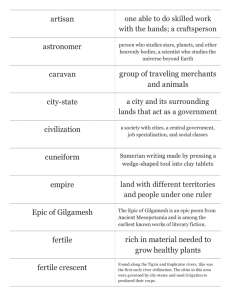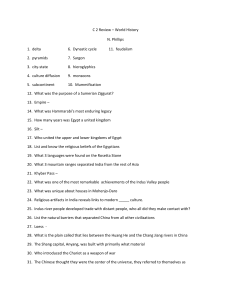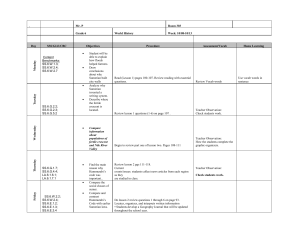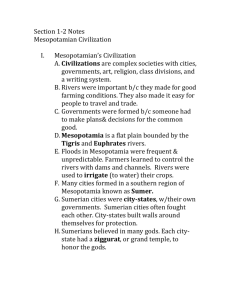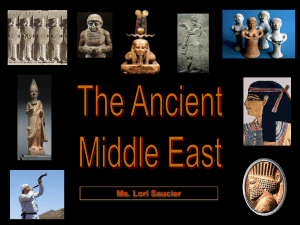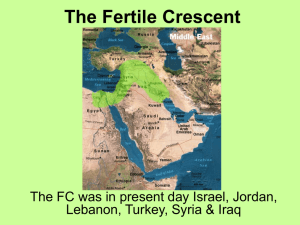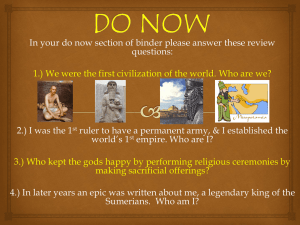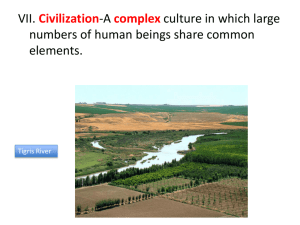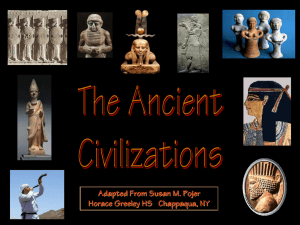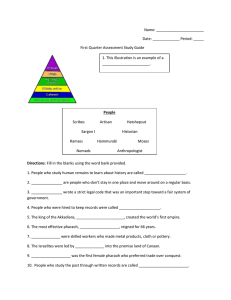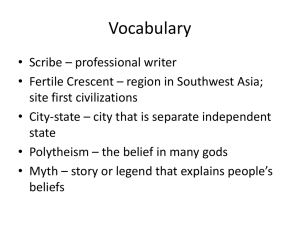Unit 1: Sumer Study Guide
advertisement
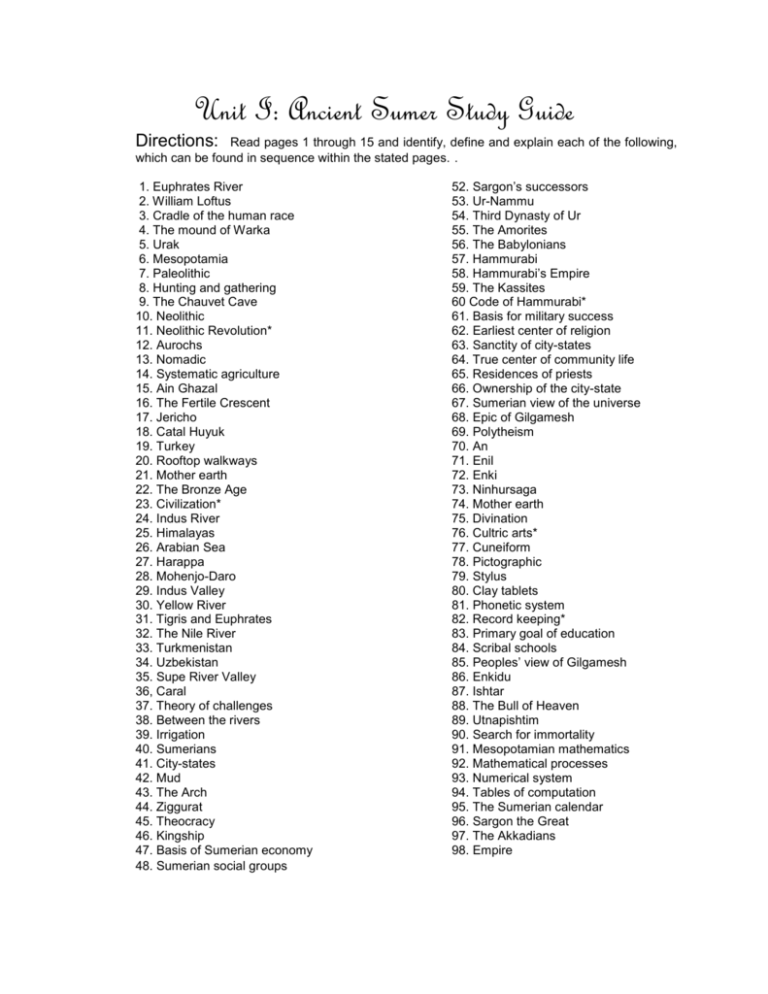
Unit I: Ancient Sumer Study Guide Directions: Read pages 1 through 15 and identify, define and explain each of the following, which can be found in sequence within the stated pages. . 1. Euphrates River 2. William Loftus 3. Cradle of the human race 4. The mound of Warka 5. Urak 6. Mesopotamia 7. Paleolithic 8. Hunting and gathering 9. The Chauvet Cave 10. Neolithic 11. Neolithic Revolution* 12. Aurochs 13. Nomadic 14. Systematic agriculture 15. Ain Ghazal 16. The Fertile Crescent 17. Jericho 18. Catal Huyuk 19. Turkey 20. Rooftop walkways 21. Mother earth 22. The Bronze Age 23. Civilization* 24. Indus River 25. Himalayas 26. Arabian Sea 27. Harappa 28. Mohenjo-Daro 29. Indus Valley 30. Yellow River 31. Tigris and Euphrates 32. The Nile River 33. Turkmenistan 34. Uzbekistan 35. Supe River Valley 36, Caral 37. Theory of challenges 38. Between the rivers 39. Irrigation 40. Sumerians 41. City-states 42. Mud 43. The Arch 44. Ziggurat 45. Theocracy 46. Kingship 47. Basis of Sumerian economy 48. Sumerian social groups 52. Sargon’s successors 53. Ur-Nammu 54. Third Dynasty of Ur 55. The Amorites 56. The Babylonians 57. Hammurabi 58. Hammurabi’s Empire 59. The Kassites 60 Code of Hammurabi* 61. Basis for military success 62. Earliest center of religion 63. Sanctity of city-states 64. True center of community life 65. Residences of priests 66. Ownership of the city-state 67. Sumerian view of the universe 68. Epic of Gilgamesh 69. Polytheism 70. An 71. Enil 72. Enki 73. Ninhursaga 74. Mother earth 75. Divination 76. Cultric arts* 77. Cuneiform 78. Pictographic 79. Stylus 80. Clay tablets 81. Phonetic system 82. Record keeping* 83. Primary goal of education 84. Scribal schools 85. Peoples’ view of Gilgamesh 86. Enkidu 87. Ishtar 88. The Bull of Heaven 89. Utnapishtim 90. Search for immortality 91. Mesopotamian mathematics 92. Mathematical processes 93. Numerical system 94. Tables of computation 95. The Sumerian calendar 96. Sargon the Great 97. The Akkadians 98. Empire
